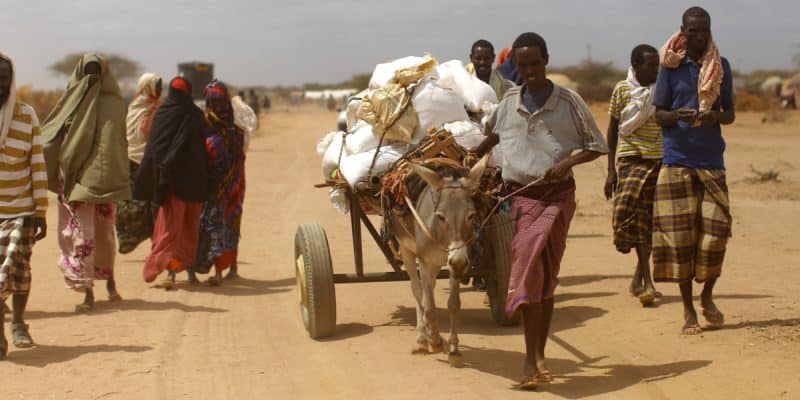Le projet intitulé « une lentille panafricaine et transdisciplinaire sur les marges : Faire face aux risques liés aux événements extrêmes » (PALM-TREEs) est lancé. Financé par le Foreign, Commonwealth & Development Office du gouvernement britannique et le Centre de recherches pour le développement international (CRDI), l’initiative vise l’obtention des données sur le choc psycho-sociologique des effets du climat sur les communautés vulnérables en Afrique.
The UK Minister for Development and Africa took advantage of the first African Climate Summit to announce the official launch of the project entitled “A Pan-African and Transdisciplinary Lens on the Margins: Coping with the Risks of Extreme Events” (PALM-TREEs). This project, which has been running since 5 September 2023, is part of the Climate Adaptation and Resilience (CLARE) initiative, a UK-Canada research framework programme on adaptation and resilience to climate change, funded to the tune of 120 million Canadian dollars, mainly by the UK government’s Foreign Commonwealth and Development Office (FCDO) and the International Development Research Centre (IDRC).
Through a transdisciplinary and pan-African approach, the project aims to empower marginalised communities to better respond to extreme climate events in Africa, such as droughts, floods and heat waves, and their interconnected and cascading socio-economic impacts.
Planned to last three and a half years, the research will focus on flooding in Kitui and Turkana counties in Kenya, flood dynamics and gender-based violence in KwaZulu-Natal in South Africa, the impact of floods and drought on women’s agricultural productivity in Cameroon and Mbanza-Ngungu in the Democratic Republic of Congo (DRC), the impact of heat stress on the health and livelihoods of communities in informal settlements in Lagos, Nigeria, and the impact of droughts, floods and water management on various communities in the Volta Basins and Accra, Ghana.
The mental health of climate-displaced people
PALM-TREEs will be implemented over a period of three and a half years by a consortium of universities and institutions led by the University of Cape Town, the University of Yaoundé 1 and the University of Oxford. The project is managed by a consortium director and principal investigators responsible for coordinating research in Southern, Central, East and West Africa.
Read also-Education systems faced with the challenge of climate change: where does Africa stand
According to the latest report from the Intergovernmental Panel on Climate Change (IPCC), more than 20 million people are displaced each year and many more are affected by floods, droughts and heat waves. These extreme events are followed by negative effects on mental health and well-being, and overlap with internal conflicts, security risks and multiple forms of vulnerability. Limited access to resources, aid and services during and after climate shocks in sub-Saharan Africa pushes communities to the margins of society and limits their capacity to adapt.
Boris Ngounou







